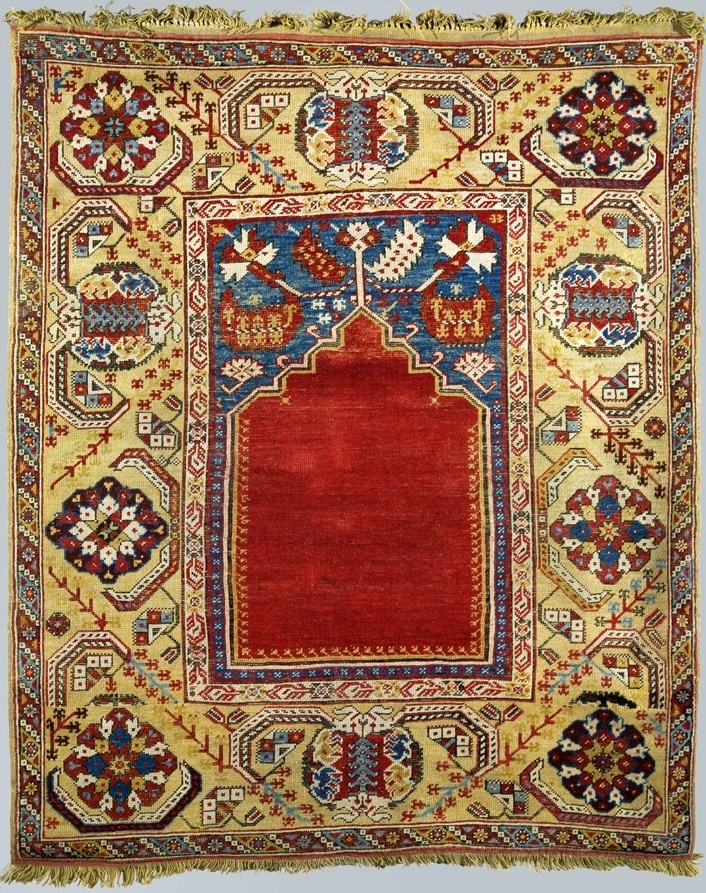Ich kenne nichts Ärmeres
Unter der Sonn', als Euch, Götter!
Ihr nährt kümmerlich
Von Opfersteuern,
Vom Gebetshauch
Eure Majestät,
Ihr darbtet, wären
Nicht Kinder und Bettler
Hoffnungsvolle Toren.
I know nothing more miserable
Under the sun than you, you gods!
You receive meagre nourishment
From sacrificial offerings
From the breath of prayers,
Feeding your majesty,
You would starve if
Children and beggars were not
Hopeless fools.
Goethe, Prometheus (D 674)
Goethe’s ‘Prometheus’ is the only character in Schubert’s song texts to express such a critical (or is it cynical?) view of the purpose of prayer. For everyone else, prayer is assumed to be a valid response to the inherent limitations and agonies of human existence.
Schubert’s songs are not the place to look for communal prayer or for praise; Lieder are more interested in individual distress. If characters are making petitions to God or the gods, they are nearly always in extremis and they tend to be asking for help for themselves more than for others. When the Emperor Maximilian (D 990A) realises the seriousness of his situation he prays fervently. The Queen in ‘Der Zwerg’ (D 771) resorts to prayer when she realises that she is about to be murdered. Sailors in peril on the sea (D 360) pray to the Dioscuri twins for protection and offer to present their oars in their temple. On the eve of battle Ellen Douglas prays to the Virgin for her father and his army (Ave Maria, D 839), but she does not explicitly put in a request for victory. Nor do others in a similar situation: Körner’s ‘Gebet während der Schlacht’ (D 171) and de la Motte Fouqué’s ‘Gebet’ (D 815).
Gretchen, the ‘fallen woman’ in Goethe’s Faust is presented as an attractively devout believer, who understandably turns to prayer in a crisis. In the early stages of the play, her piety was contrasted with Faust’s more ‘enlightened’ approach to religion. He argues that names and doctrines do not matter: ‘Gefühl ist alles’ (feeling is everything). For her, though, this general ‘deism’ or ‘nature religion’ does not serve her purpose. When she finds herself pregnant and ostracised, only visits to church (Szene aus Faust, D 126) and prayers to the Virgin (Gretchen im Zwinger, D 564) can offer solace.
For a number of male poets, the idea of a pious young woman praying fervently added to their desirability. Matthisson’s Laura, who caused sinners to turn to prayer when she sang Klopstock’s Resurrection hymn (An Laura, als sie Klopstocks Auferstehungslied sang, D 115), arouses awe and ecstacy in the poet as he watches her at her devotions:
Laura betet! Engelharfen hallen
Frieden Gottes in ihr krankes Herz!
Und wie Abels Opferdüfte wallen
Ihre Seufzer himmelwärts.
Wie sie kniet, in Andacht hingegossen,
Schön, wie Raphael die Unschuld malt,
Vom Verklärungsglanze schon umflossen,
Der um Himmelswohner strahlt.
O sie fühlt, im leisen, linden Wehen
Froh des Hocherhabnen Gegenwart
Sieht im Geiste schon die Palmenhöhen,
Wo der Lichtkranz ihrer harrt.
So von Andacht, so von Gottvertrauen
Ihre engelreine Brust geschwellt,
Betend diese Heilige zu schauen,
Ist ein Blick in jene Welt.
Laura is praying! Angel harps echo
God's peace in her sick heart,
And, rising like the scent of Abel's sacrifice,
Her sighs ascend towards heaven.
How she kneels, throwing herself into devotion,
Beautiful, as Raphael paints innocence,
Already surrounded by the light of transfiguration
Which shines around those who live in Heaven.
Oh, in the quiet, gentle sighs she feels
The joy of the elevated presence;
She can already see in spirit the tops of the palms
Where the halo is waiting for her!
Thus, as devotion and trust in God
Swell her angel-pure breast,
Watching this saint pray
Is a glimpse into that world.
Matthisson, Die Betende (D 102)
☙
Descendant of:
RELIGIONTexts with this theme:
- Gebet während der Schlacht, D 171 (Theodor Körner)
- Die Betende, D 102 (Friedrich von Matthisson)
- An Laura, als sie Klopstocks Auferstehungslied sang, D 115 (Friedrich von Matthisson)
- Szene aus Faust, D 126 (Johann Wolfgang von Goethe)
- Das Bild, D 155 (Anton Simon)
- Abendlied (Groß und rotentflammet), D 276 (Friedrich Leopold Graf zu Stolberg-Stolberg)
- Namensfeier für Franz Michael Vierthalter (Gratulations-Kantate), D 294 (Anonymous / Unknown writer)
- Lied eines Schiffers an die Dioskuren, D 360 (Johann Baptist Mayrhofer)
- Die Herbstnacht, D 404 (Johann Gaudenz von Salis-Seewis)
- Uraniens Flucht, D 554 (Johann Baptist Mayrhofer)
- Gretchen im Zwinger, D 564 (Johann Wolfgang von Goethe)
- Der Knabe in der Wiege, D 579 (Anton Ottenwalt)
- Prometheus, D 674 (Johann Wolfgang von Goethe)
- Der Zwerg, D 771 (Matthäus Karl von Collin)
- Gebet, D 815 (Friedrich Heinrich de la Motte Fouqué)
- Lied der Anne Lyle, D 830 (Wilhelm Adolf Lindau, Andrew MacDonald, and Walter Scott)
- Ellens Gesang III (Hymne an die Jungfrau / Ave Maria), D 839 (Walter Scott and Philip Adam Storck)
- Die Allmacht, D 852, D 875A (Johann Ladislaus Pyrker von Felső-Eör )
- Wiegenlied, D 867 (Johann Gabriel Seidl)
- Hymnus an den heiligen Geist, D 948 (Adolph Schmidl)
- Kaiser Maximilian auf der Martinswand, D 990A (Heinrich Joseph von Collin)


